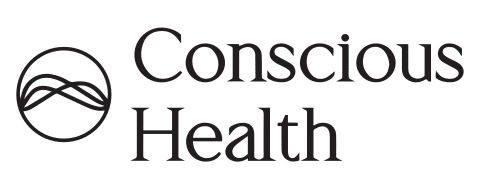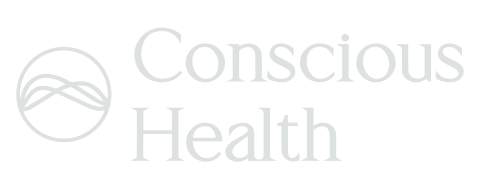Memory disorders can have a devastating impact on a person’s ability to learn, connect with others, and maintain their sense of self. Research indicates that treatment involving supplemental NAD+ may be able to help people with certain age-related memory deficits.
What Are Memory Disorders?
Memory disorders are health conditions that impair a person’s ability to make, store, and/or retrieve memories.
Types of Memory Disorders
Memory loss is sometimes, but by no means always, the result of a medical or neurological concern. Examples of illnesses that are frequently categorized as memory disorders include:
- Amnesia
- Alzheimer’s disease
- Vascular dementia
- Dementia with Lewy bodies (DLB)
- Mild cognitive impairment
- Creutzfeldt-Jakob disease
- Frontotemporal dementia
- Normal pressure hydrocephalus
- HIV dementia
- Parkinson’s disease
Other factors that can cause or worsen memory loss include traumatic brain injury (TBI), psychological trauma, substance abuse, sleep deprivation, malnutrition, exposure to overwhelming stress, and some mental health disorders.
Also, a mild decline in memory is a common part of the aging process.
What Causes Memory Disorders?
Many cases of memory loss are caused by memory disorders – but what causes the memory disorders themselves?
Memory disorders rarely have single, definitive causes. Instead, there are a variety of factors that can increase a person’s risk for developing one of these conditions.
Each type of memory disorder has its own set of risk factors. Generally speaking, though, the following traits, behaviors, and experiences can be influential:
- Age (risk of memory loss increases with age)
- Genetic variations or abnormalities
- Family history of memory disorders
- Substance abuse
- History of head injuries
- Cardiovascular disease
- Hearing loss
- Social isolation
- Poor diet
- Tobacco use
- Exposure to air pollution
- Lack of access to healthcare
Treatment and Strategies to Improve Memory
Discussions of memory disorders and other health concerns often focus on risk factors, while not giving ample attention to protective factors.
Acting as a counterbalance to risk factors, protective factors are characteristics that can decrease the likelihood that a person will struggle with memory loss. In some cases, certain approaches may be able to slow the progression of memory loss or potentially reverse existing deficiencies.
Strategies for reducing your risk of memory loss include:
- Following a nutritious diet plan
- Incorporating physical activity into your daily schedule
- Making sure you get an appropriate amount of sleep every night
- Engaging in brain-stimulating activities, which can range from doing crossword puzzles to learning a new language
- Staying connected with friends and family members
- Using protective headgear when riding a bike or taking part in other activities that could expose you to head trauma
- Getting professional help to treat or manage any medical or mental health concerns
- Avoiding alcohol, tobacco, and other recreational substances
If you have been struggling with minor forgetfulness, here are a few tips that can help:
- Use your voice. When you receive new information (such as meeting someone and being told their name), repeat it aloud to help solidify it in your memory.
- Create mnemonics. A mnemonic involves taking the first letter of each word in a list, then using those letters to create a word or words. Examples of popular mnemonics include HOMES to represent the Great Lakes (Huron, Ontario, Michigan, Erie, and Superior) and ROY G. BIV to remember the colors of the rainbow (red, orange, yellow, green, blue, indigo, and violet).
- Take notes. Physically putting pen to paper is a great way to shift new information from short-term to long-term memory, but typing into an app or online resource can also be helpful, too.
- Keep a calendar. As with the previous tip, this can involve either a physical calendar or a digital version. In this case, a calendar on your smartphone may be best, as you can also set reminders to ensure you don’t forget birthdays, appointments, or other events.
How NAD+ Supports Memory and Brain Function
Some risk factors for memory disorders, such as substance use, poor diet, and lack of exercise, can be eliminated by behavioral adjustments. Others, such as the aging of your brain, can be much more difficult to influence. But that doesn’t mean there is no way to make a positive difference.
In recent years, several studies have found that efforts to artificially increase the amount of NAD+ in a person’s system may be able to counteract some age-related memory disorders and deficits.
Nicotinamide adenine dinucleotide (NAD) is a coenzyme that plays an essential role in the body’s ability to convert nutrients into energy. This coenzyme is naturally present in virtually every living cell, and it can also be acquired through diet.
NAD typically exists in one of two states:
- NAD+ is the oxidized version of NAD, which means it can accept electrons from other molecules.
- NADH is the reduced version, which means it can donate electrons.
NAD’s ability to exchange electrons with other molecules allows it to play a vital role in essential processes such as converting nutrients into energy and repairing damaged DNA.
As people age, their NAD+ levels typically decline. This can contribute to a host of problems, including mood dysregulation, inflammation, declining brain health, and memory loss.
Evidence that supplemental NAD+ can prevent or reverse these types of problems includes:
- A February 2018 study in the journal Proceedings of the National Academy of Sciences (PNAS) reported that NAD+ supplementation normalized DNA damage and contributed to “improved learning and memory and motor functions” in mice that had been genetically altered to experience features of Alzheimer’s disease.
- A September 2021 study in the Journal of Neuroinflammation determined that supplemental NAD+ improved learning and memory deficits caused by chronic cerebral hypoperfusion (CCH) in rodents.
- An August 2022 review in the journal Nutrients reported that, “A large body of preclinical research supports the potential effectiveness of NAD+ precursor supplementation for preserving cognitive health across a variety of disease contexts, with the strongest evidence presented for Alzheimer’s disease and other forms of dementia.”
Begin Treatment for Memory Disorders at Conscious Health Center in Los Angeles
Conscious Health Center is a trusted source of personalized outpatient care for individuals whose lives have been impacted by memory disorders and other mental health or neurocognitive concerns.
Our dynamic array of evidence-based interventions includes NAD+ infusion therapy, transcranial magnetic stimulation (TMS) therapy, vibroacoustic therapy, electromagnetic brain pulse (EMBP) therapy, neurofeedback therapy, and ketamine therapy.
To learn more about how we can help you or a loved one, or to schedule a free consultation, please visit our Contact page or call our center today.
Published: 7/24/2025



